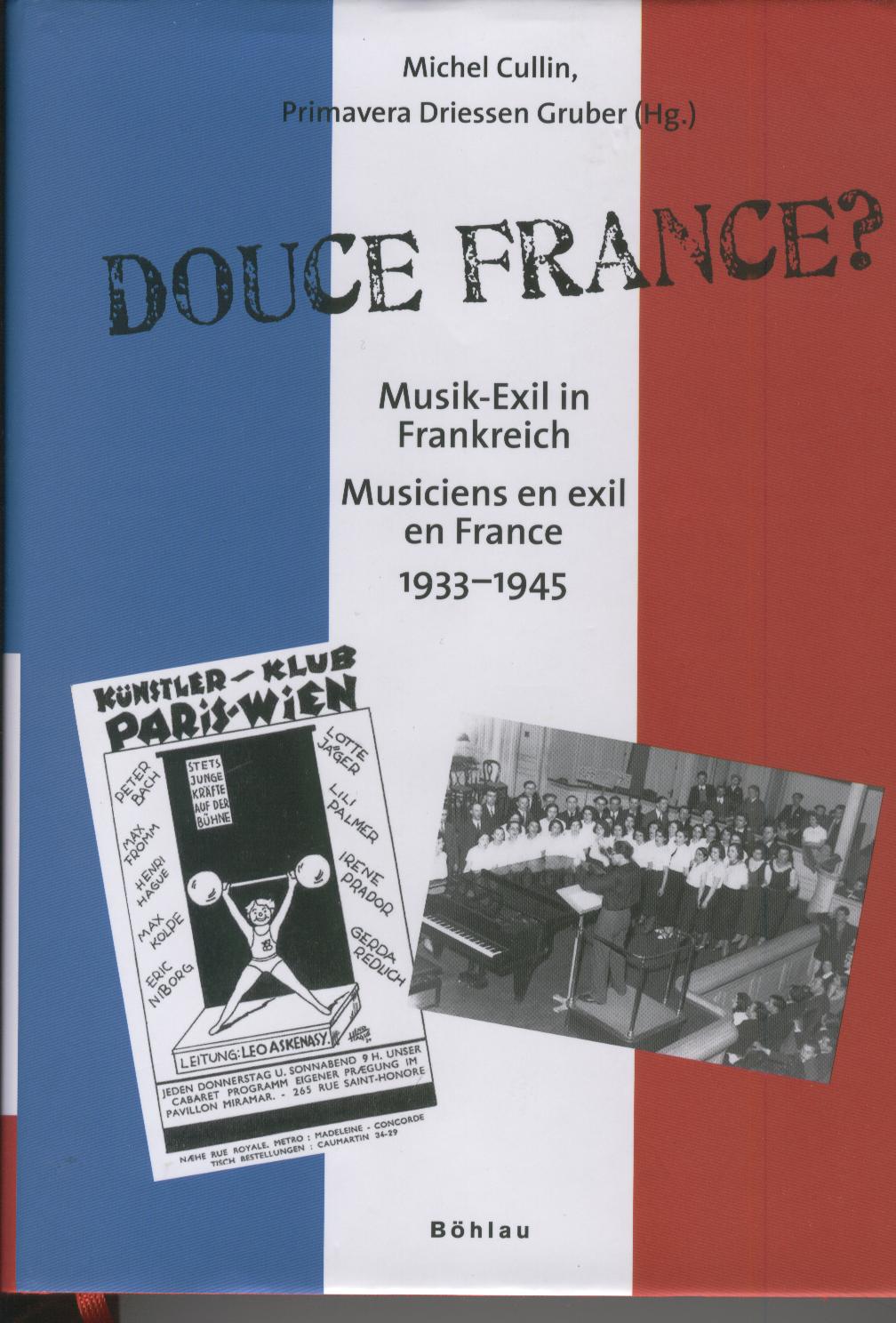Untitled Document
Douce France : Musik Exil in Frankreich, book review

Michiel Cullin/ Primavera Gruber (Hg)
508 pp, Bohlau Verlag, 2008 (www.boehlau.de)
Most of our readers will be familiar with Charles Trenet's song from which the tile of this book is chosen yet the large majority won't be familiar with the stories told in this 508 pages book. But is it of interest to visitors of this site? That answers depends on what your priorities are. If they are mainly operatic and especially singers the book is not for you. The book deals with France and its treatment of Nazi refugees (and musicians) before and during the German occupation of France. A vast array of exiled musicians opted for France for a shorter or longer period of time from 1933 onwards. Some of their stories are told here. Mind you the book is not a single narrative but mainly made up of several contributions which make up for a rather distracted story line. Moreover it's a bilingual book as the same text is both available in German and French which is a rather odd approach for the obvious reasons. Luckily the illustrations and photographs don't overlap. Several opera singers settled in France as a refuge for the madness of the Nazis and their thugs yet theya ren't even mentioned in the book. The much lamented and regretted fate of Theodore Ritch (see soundbites) is a case in point. Lotte Schone another important singer is mentioned only twice but her story is not told. The only singer who gets full attention is cantor Samuel Taube and his remarkable story is worthwile reading and a worthwile addition to cantorial history. The book' s main interest lies in the stories of several famous and not so famous composers ranging from Norbert Glanzberg (composer for Piaf, Tino Rossi and Petula Clark to mention just a few) to Eric Zeisl. The book also has an alphabetical list of exiles which is rather useless as no further info is given concerning their musical activity.
Rudi van den Bulck

